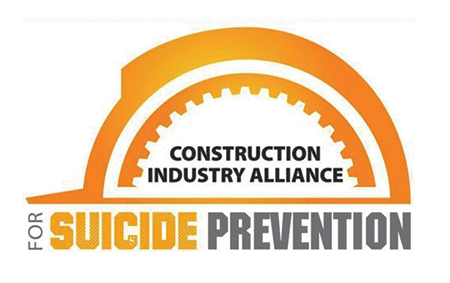Nevada governor signs prevailing wage, unions bills
 Sisolak |
Gov. Steve Sisolak (D-Nev.) signed bills into law at the end of May that raise the prevailing wage for workers on some public construction projects and remove restrictions on union-affiliated contractors by public agencies, according to www.constructiondive.com.
Assembly Bill 136 reduces the prevailing wage threshold contract amount for public projects from $250,000 to $100,000 and restores the prevailing wage for workers on public school projects to 100%. Under the previous law, those workers earned 90% of the prevailing wage.
Senate Bill 231 repeals a previous prohibition on contractors entering into agreements with trade unions and abiding by other labor-related restrictions while they are working on public projects.
Opponents of a prevailing wage requirement consider it to be anti-competition and believe the free market should play a major role in deciding pay rates beyond minimum wage. Some argue pay regulations are bad for state and local economies because they may discourage companies from wanting to conduct business in those locations.
Those who support a prevailing wage argue such requirements lead to increased productivity, higher wages for construction workers and enhanced work-site safety.
NRCA partners with SkillsUSA to support technical education

|
NRCA has partnered with SkillsUSA and now is a SkillsUSA Official Business Partner. SkillsUSA is a partnership of students, teachers and industry professionals working together to ensure the U.S. has a skilled workforce. It provides educational programs, events and competitions that support career and technical education in U.S. classrooms.
Through engagement with SkillsUSA, NRCA has begun expanding its outreach and footprint in the career and technical fields to establish roofing as a core curriculum in schools and help NRCA members address labor shortages. NRCA attended the annual National Leadership & Skills Conference the week of June 24 in Louisville, Ky., and participated in the Meet the Employer event June 28. NRCA also will serve as a co-sponsor of SkillsUSA’s State Directors Leadership Conference in Washington, D.C., Aug. 12-17.
In the spirit of celebrating high school seniors who are pursuing a career in the skilled trades, SkillsUSA National Signing Day 2019 was held May 8. Similar to National Signing Day events for high school student athletes, seniors were applauded as they announced their career plans and signed letters of intent for job offers, apprenticeships or advanced technical training. The inaugural nationwide program recognized students in hundreds of SkillsUSA chapters in high schools throughout the U.S.; 300 schools and 3,000 students participated.
Dallas/Fort Worth airport plans $3.5 billion terminal upgrade

|
Dallas/Fort Worth International Airport has announced it will spend up to $3.5 billion on construction projects including building a sixth terminal, making the airport the latest to undergo expansion efforts. Chicago O’Hare International Airport and Kansas City International Airport also have undertaken large construction projects in recent years to keep up with a growing number of passengers.
Dallas/Fort Worth International Airport currently has 164 gates and is the fourth busiest airport in the U.S. American Airlines is based in Fort Worth, Texas, and accounts for more than 80% of the airport’s flights. A record 69 million passengers traveled through Dallas/Fort Worth International Airport during 2018, and more passenger and flight growth is predicted at the airport during the next two years than has occurred during the past 20 years. The growing number of passengers is the result of a booming local population—the Dallas/Fort Worth region added more people in 2018 than any U.S. metro area, according to the U.S. Census Bureau. In addition, several corporations have relocated to the area.
To accommodate more passengers, Dallas/Fort Worth International Airport’s new Terminal F will have as many as 24 gates and is scheduled to open in 2025, according to Sean Donohue, CEO of Dallas/Fort Worth International Airport. In addition, up to $1 billion of the construction funds will be allocated to renovating Terminal C, which previously hasn’t had the same modernization work as the airport’s other terminals.
Decline in labor’s income share may not be cause for concern

|
The decline in U.S. labor’s share of income since the early 2000s may be less worrisome than previously thought, according to Bloomberg Law.
A May 22 report from the McKinsey Global Institute, the research branch of New York-based management consulting company McKinsey & Co., explains a portion of the decrease is “technical” and stems from increased business investment in products such as software and databases, which depreciate quickly but can boost worker productivity and wages over time.
The McKinsey Global Institute also concludes globalization, automation and the declining power of unions have had a smaller effect on U.S. labor’s share of income than is widely believed. The institute predicts a similar, slower decline will occur in coming years as the economic benefits of outsourcing diminish.
The report reveals a dozen sectors of the economy accounting for one-third of U.S. employment majorly contributed to the decline. The wholesale and retail industries top the list because automation has led to consolidation and reduced workers’ wages in these industries. Real estate, telecommunications and transportation also contributed to the reduction.
The McKinsey Global Institute reports the biggest reason for the decline was economic super-cycles and boom-busts that are unlikely to be repeated soon. These cycles reduced U.S. labor’s share of income because they occurred in capital-heavy industries such as construction and oil and gas. The second-largest reason is depreciation, which accounted for about one-quarter of the decline.
Suicide prevention alliance offers resource for employers

|
As part of its commitment to safety in the roofing industry, NRCA is a member of the Construction Industry Alliance for Suicide Prevention, a group of key industry organizations that have recognized and are committed to promoting the safety and well-being of construction workers. The Construction Industry Alliance for Suicide Prevention offers resources on its website, including published articles, frequently asked questions, posters and free mental health screening. Part of NRCA’s membership commitment involves periodically sharing the association’s suicide-prevention resources.
One resource designed for construction industry employers is the “Mental Health & Suicide Prevention for Construction Companies Needs Analysis & Integration Checklist.” The Construction Industry Alliance for Suicide Prevention developed the Needs Analysis to help employers evaluate how they address mental health in the workplace and how prepared they are to handle a mental health or suicide crisis. The Needs Analysis has five areas of readiness for an employer to study:
- Corporate attention to and consideration of mental health
- Resources in place for employees dealing with a mental health issue or personal crisis
- Readiness of the company to assist suicidal employees
- Building protective factors
- Crisis response
Each section contains evaluation questions and initial action steps for employers to work on improving their companies’ readiness.
The Integration Checklist is a tool that can help employers build mental health promotion and suicide prevention into their workplaces. After completing the Needs Analysis, employers can use the checklist to evaluate who within their organizations will be responsible for each item and who needs to be involved with implementation.
Industry professionals are encouraged to take advantage of all resources the Construction Industry Alliance for Suicide Prevention offers, which are in place to help ensure any individual who may need mental health assistance receives the support he or she needs. The Mental Health & Suicide Prevention for Construction Companies Needs Analysis & Integration Checklist and additional resources are available at www.preventconstructionsuicide.com.



